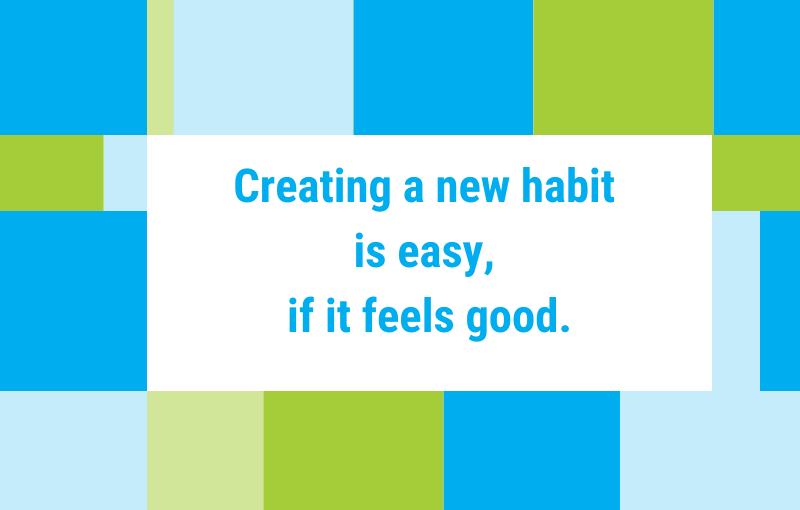Regular repetition of a new behaviour finally makes it habitual.
If we decide to start a new behaviour and intend to continue doing it, we want the new behaviour to get deeply ingrained in our brain and become habitual behaviour, so that we no longer have to invest attention and effort into doing it regularly and reliably.
And yes, if we manage to continue doing the behaviour for a while, our brain ‘gets used’ to it and accepts it as the best course of action in certain circumstances.
It decides that it no longer needs to take conscious care of the behaviour and transfers it into its unconscious areas – the behaviour becomes a habit.
Example:
Most of us buckle up as soon as we sit down in our car. We don’t have to think about it, we don’t have to remind ourselves to do it, we do it on default – buckling up before we start driving has become an unconscious behaviour – a habit.
It’s easier to transform a new behaviour into a habit if our brain ‘likes’ the behaviour.
The problem with many new behaviours is that the survival manager of our brain (Click here to read more about the two parts of the brain) doesn’t want to ‘get used’ to doing them in the beginning.
As soon as we start to execute a new behaviour, the survival manager in our brain gets nervous.
As we know, the main interests of the survival manager are
-
- to avoid pain,
- to seek pleasure,
- to save energy.
It wants us to avoid anything that could cause pain or uncomfortable feelings or requires effort and energy.
In order to help the survival manager give up its resistance and accept a new behaviour easier and faster we want
-
- to make the desired behaviour as painless, as pleasurable, and as efficient as possible,
- and ensure that executing the behaviour feels good to us (and to the survival manager).
Good feelings spur the production of a neurotransmitter (a chemical messenger in the brain) called dopamine that controls the brain’s ‘reward system’.
The increase in dopamine motivates the brain to link the good feelings to the behaviour.
In future, in similar situations, it will remember the behaviour that led to the positive feeling – and it will want us to do it again. And again. The behaviour develops into a habit.
Celebrating directly after we have done a specific behaviour, is another great way to increase the likelihood that we will do it again:
Celebrating makes us feel good in the current situation which makes the behaviour an easy choice in similar future situations.
There are other ways how we can overcome the brain’s aversion to negative feelings and exploit its desire to feel good.
One of the best strategies is to start the desired behaviour changes with the help of suitable ‘mini habits’.
We’ll discuss these strategies in detail in the coming post.

